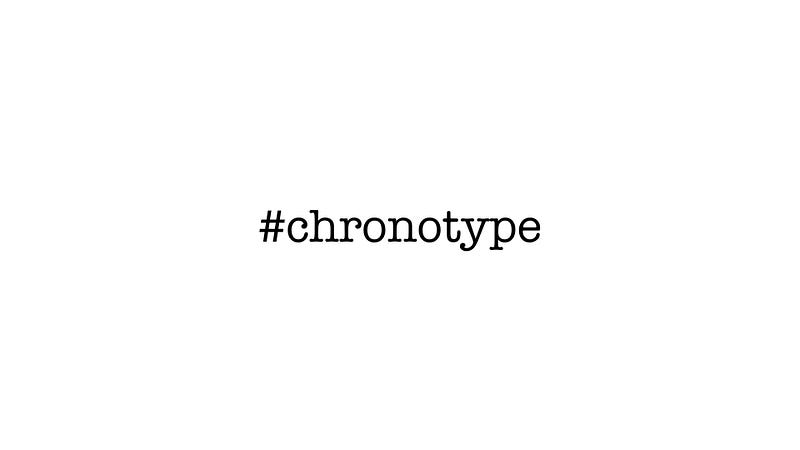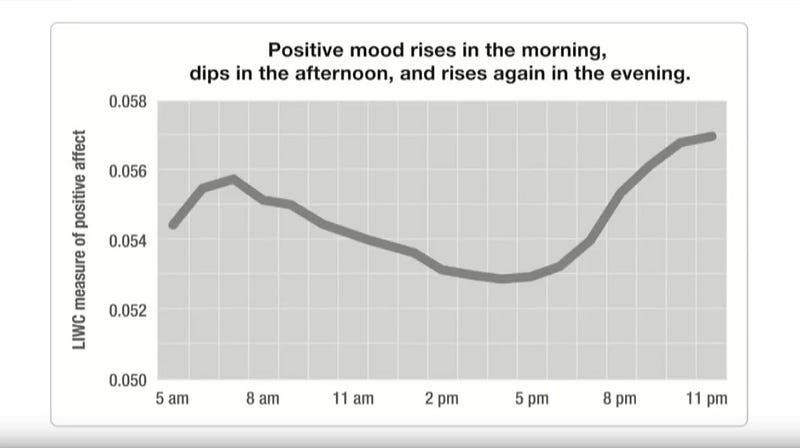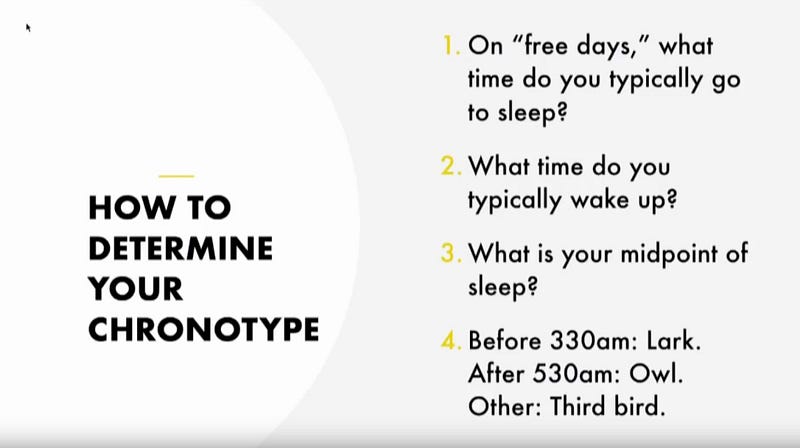
Daniel Pink has a new book: The Scientific Secrets of Perfect Timing.
I watched his RSA talk on YouTube, where he explained why timing for us humans matters.
[embed]https://www.youtube.com/watch?v=EbicgT4KrWc[/embed]
He mentioned some studies that analysed words from a large set of date using LIWC. The way that the Linguistic Inquiry and Word Count (LIWC) program works is fairly simple. Basically, it reads a given text and counts the percentage of words that reflect different emotions, thinking styles, social concerns, and even parts of speech.
One of those studies they analysed 500 million tweets over 2.4 million users in 84 countries to learn about their emotional content. What was very evident that the mood of the tweets vary across the time of day. Better at the start, then it dipped (the trough) and then recovered by the end of the day.

His premise after a number of other studies, like investor earning calls, students pass rates at exams, is that we all perform differently depending the time of day.
He suggest we can all work out our chronotype by calculating when we go to bed and when we get up during a non-working day, he calls it ‘free day’. Determine the mid point of the no of hours sleep and if it’s before 3.30am we are a lark and after 5.30am we are an owl. Anything else, we are a 3rd bird.

Do your deep thinking work at your best time, your admin in the trough and have insights late in the evening.
Guess what time I’m writing this on a train back from Birmingham? 10pm! It’s remarkable easy to write at this time.
Happy sleeping!